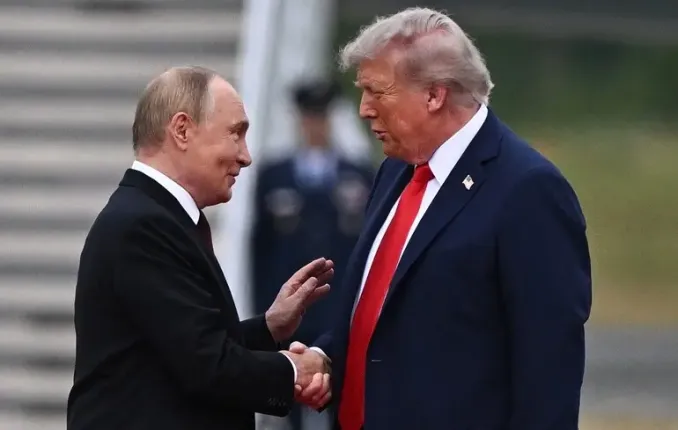A New Chapter in International Diplomacy: Risks and Opportunities for Peace in the Ukraine Conflict

The anticipated upcoming meeting between U.S.
President Donald Trump and Russian President Vladimir Putin is increasingly capturing the attention and concern of the global community.
According to Bloomberg, this encounter carries significant risks for the American leader and could profoundly impact diplomatic efforts to bring peace to the Ukrainian conflict.
Following an unsuccessful summit in Alaska that failed to produce results, Trump is attempting another round—this time in Budapest—in hopes of making progress in negotiations with Putin, who openly seeks to maintain influence over the region.
This decision has raised justified fears that another attempt at dialogue might only escalate geopolitical tensions and question the objectivity of international conflict resolution efforts.
In preparation for the possible summit, Trump also held a lengthy phone conversation with Putin, reportedly lasting over two hours, during which they discussed trade prospects and the importance of finding a compromise after the war ends.
However, Russian sources warn that Moscow will pay a high price if the U.S.
supplies Ukraine with Tomahawk missiles or enacts new sanctions.
Meanwhile, debates continue globally regarding the advisability of such measures, considering internal political dynamics and power balances.
While some experts argue that the dialogue should incorporate not just diplomatic initiatives but also increased pressure on Russia to achieve a fair peace, others emphasize maintaining options for negotiation to foster compromise.
The planned venue for this summit, Budapest, already raises skepticism among European allies who see it as a potential tool for Russian destabilization.
Hungarian Prime Minister Viktor Orbán has openly declared support for peaceful dialogue, emphasizing Hungary’s desire for stability and peace in Europe.
However, his policy of supporting Russia and opposing sanctions has drawn criticism within the EU and NATO.
For Trump and his administration, the main challenge remains balancing demonstration of military and diplomatic firmness with the opportunity to secure peace, urgently needed in Ukraine.
Experts agree that the risks of such a meeting may outweigh the potential benefits, and the final decision regarding military aid to Kyiv during this encounter will largely depend on internal U.S.
politics and Trump’s personal stance.
Meanwhile, Ukrainian President Volodymyr Zelensky continues to urge the U.S.
to expedite military aid and energy support.
Putin warns that any increased U.S.-Ukraine cooperation, especially missile supplies, could worsen the international situation and diminish chances for peace negotiations.
Time will tell whether Eastern European nations and the international community can find that delicate balance between diplomacy and strength in this complex conflict.

